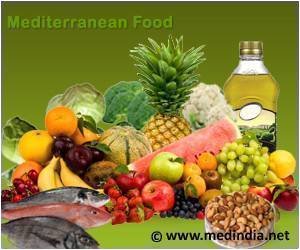“We develop an index of dietary biomarkers based on food groups that are part of the Mediterranean diet, and we assess their association with mortality,” said the UB Professor Cristina Andrs-Lacueva, head of the research group in CIBERFES.
In this study, researchers chose the reference levels of the following dietary biomarkers in the urine: total polyphenols and resveratrol metabolites (from grape intake) and presents in plasma, plasma carotenoids, selenium, vitamin B12, fatty acids, and their proportion of monounsaturated and saturated fatty acids. They have used a predictive model, and were evaluating the associations of the Mediterranean diet index and the food-frequency questionnaire (FFQ) with mortality.
During the years of monitoring of the study, there were 425 deaths (139 due to cardiovascular diseases and 89 due to cancer-related causes). Once the models were analyzed, the scores of the Mediterranean diet using the biomarkers were inversely associated with all causes of death.
This study, thus, highlights the use of dietary biomarkers to improve the assessment of nutritional factors and guides it for older people. As noted by the CIBERFES researcher of the UB Toms Meroo, co-first signatory of the study, the researchers “confirm that an adherence to the Mediterranean diet assessed by a panel of dietary biomarkers is inversely associated with the long-term mortality in older adults, which supports the use of these biomarkers in monitoring evaluations to study the health benefits associated with the Mediterranean diet.”
Source: Medindia



